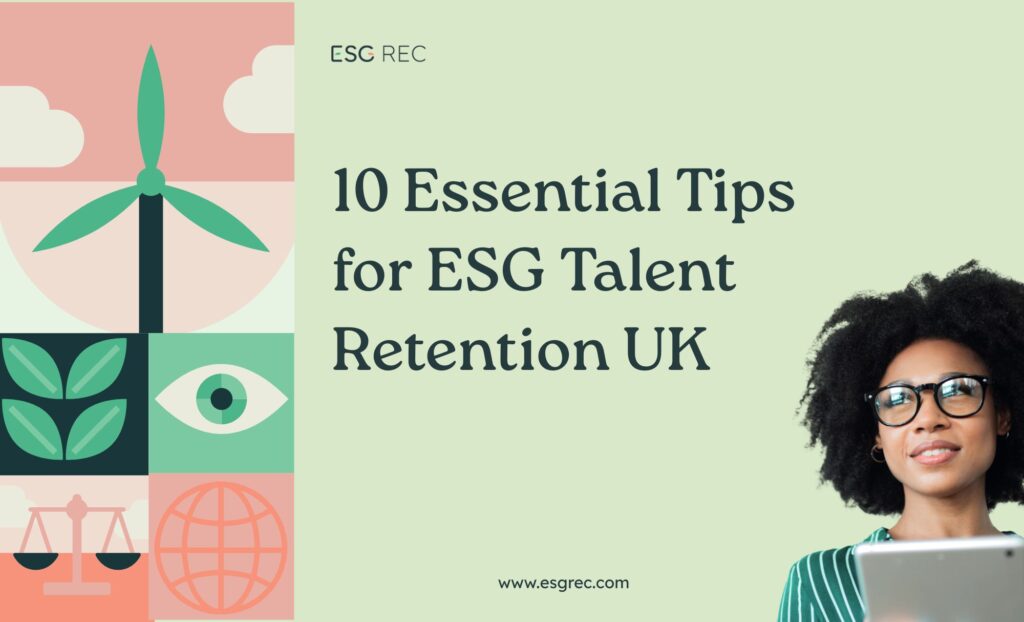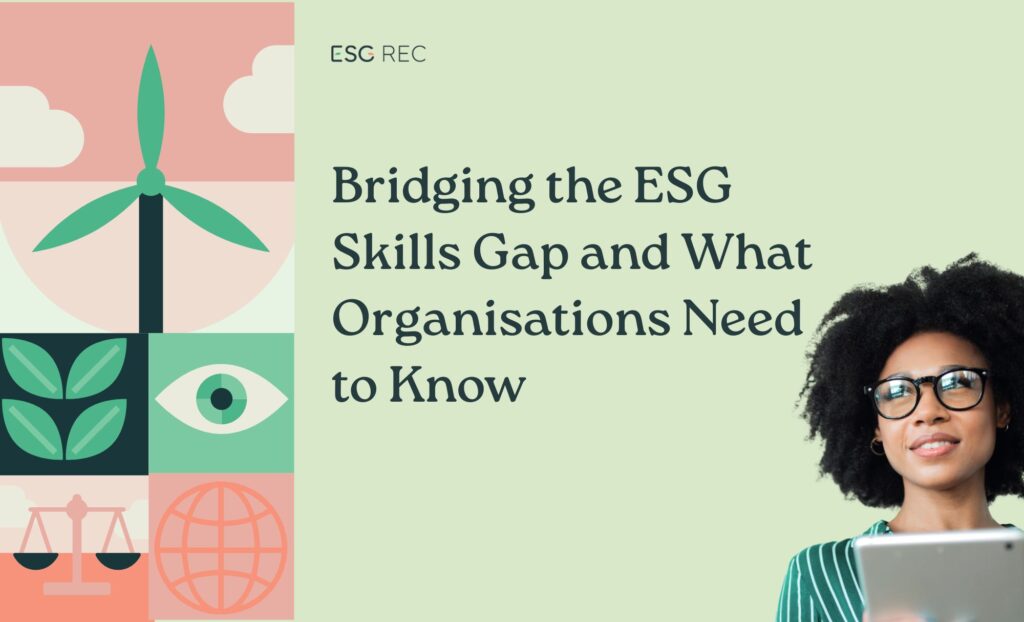Hiring ESG talent UK is becoming increasingly challenging in 2025. With sustainability and responsible business practices now central to corporate strategy, organisations across the UK are racing to attract skilled ESG professionals. Despite the rising demand, many employers report difficulties in filling roles, with positions staying open for months, repeated re-advertising, and candidates declining offers. The gap between organisational ambition and recruitment reality is widening, highlighting the need for specialist support.
The Current Struggles in Hiring ESG Talent UK
Employers face a unique set of challenges when recruiting ESG talent UK, including:
- Extended vacancies: ESG roles often remain unfilled for months. This delay not only slows down sustainability initiatives but also affects broader business performance.
- Limited candidate pool: A small number of professionals have the expertise needed for high-demand ESG roles, meaning the same candidates are approached repeatedly by multiple employers.
- Expectation mismatch: Employers frequently seek immediate expertise and prior experience in ESG frameworks, while candidates prioritise flexibility, purpose-driven roles, and competitive compensation packages.
- Regional disparities: London remains the main hub for ESG professionals, but employers in Manchester, Birmingham, Edinburgh, and other cities struggle even more to attract the right talent.
These factors combine to make hiring ESG talent UK a strategic challenge rather than just a routine recruitment task.
How ESG REC Supports Employers Hiring ESG Talent UK
At ESG REC, we provide targeted solutions to help employers navigate the competitive ESG recruitment landscape. Our approach focuses on understanding market realities, connecting with the right professionals, and supporting both clients and candidates throughout the hiring process.
- Market insight: We provide accurate data on candidate availability, hiring timelines, and sector-specific trends, helping employers make informed decisions.
- Specialist networks: ESG REC has access to professionals not actively listed on job boards, including those in niche ESG disciplines.
- Flexible recruitment solutions: Whether you need interim or permanent staff, we tailor our approach to meet your organisation’s immediate and long-term needs.
- Candidate care: We ensure professionals feel engaged, supported, and informed, increasing the likelihood of successful hires and long-term retention.
By addressing the challenges head-on, ESG REC enables organisations to hire ESG talent UK efficiently and strategically.
Why Hiring ESG Talent UK is Critical
The need for ESG professionals in the UK is not just a recruitment trend—it is a business imperative. Organisations cannot rely on outdated hiring practices if they want to maintain or expand ESG initiatives. Skilled professionals bring expertise in:
- Climate change and carbon management
- Environmental risk and compliance
- Social responsibility and stakeholder engagement
- Governance, ethics, and sustainability reporting
Securing the right ESG talent UK ensures that businesses can execute ESG strategies effectively, stay competitive, and meet both regulatory and societal expectations.
Overcoming Recruitment Challenges in 2025
Hiring ESG professionals requires a combination of creativity, persistence, and strategic planning. Employers should consider:
- Proactive talent mapping: Identifying potential candidates before vacancies arise.
- Employer branding for ESG roles: Highlighting the company’s sustainability commitments, culture, and impact to attract purpose-driven candidates.
- Flexible compensation and benefits: Offering packages aligned with candidate expectations, including remote working options and career development opportunities.
- Partnership with specialist recruiters: Collaborating with agencies like ESG REC ensures access to a wider talent pool and professional support throughout the recruitment process.
These strategies can significantly improve the success rate of hiring ESG talent UK and help organisations build high-performing sustainability teams.
Case Study: ESG REC in Action
Several UK organisations have benefited from ESG REC’s expertise. By leveraging our market insights, specialist networks, and candidate engagement strategies, clients have:
- Reduced time-to-hire for senior ESG positions by up to 40%
- Increased offer acceptance rates through tailored candidate care
- Secured hard-to-find specialists in environmental, social, and governance domains
This demonstrates the tangible value of partnering with a dedicated ESG recruitment specialist.
Conclusion
Recruiting ESG talent UK in 2025 is a complex challenge that requires persistence, innovation, and expert guidance. With demand for sustainability professionals outpacing supply, employers cannot rely solely on traditional recruitment methods. ESG REC supports organisations to navigate these challenges, secure scarce talent, and build resilient ESG teams capable of driving meaningful impact.






